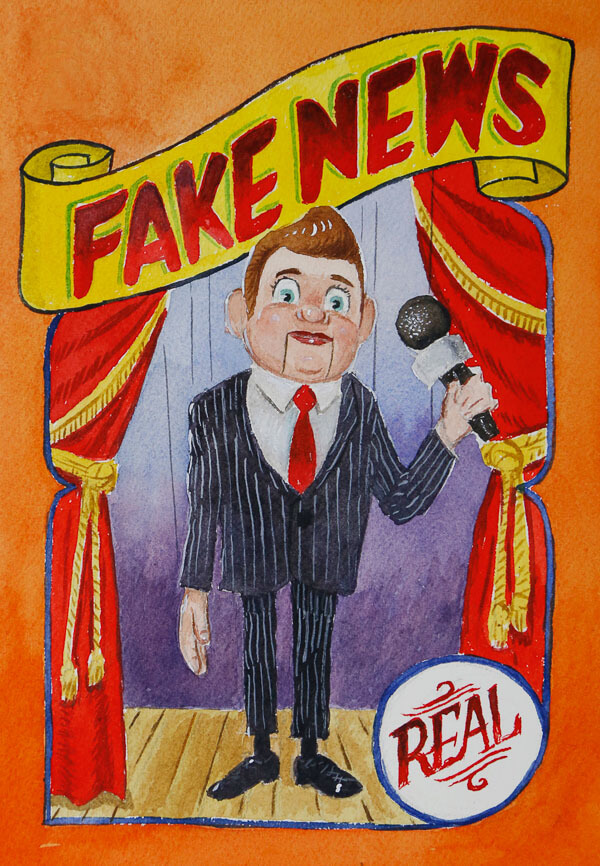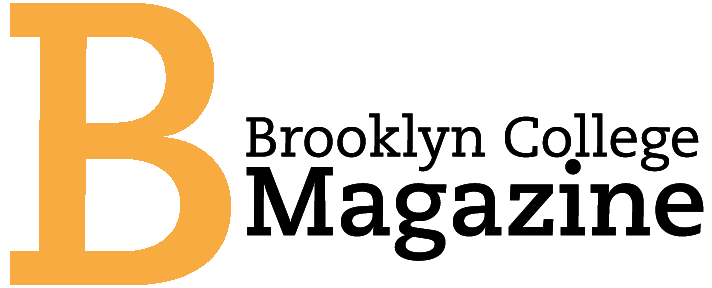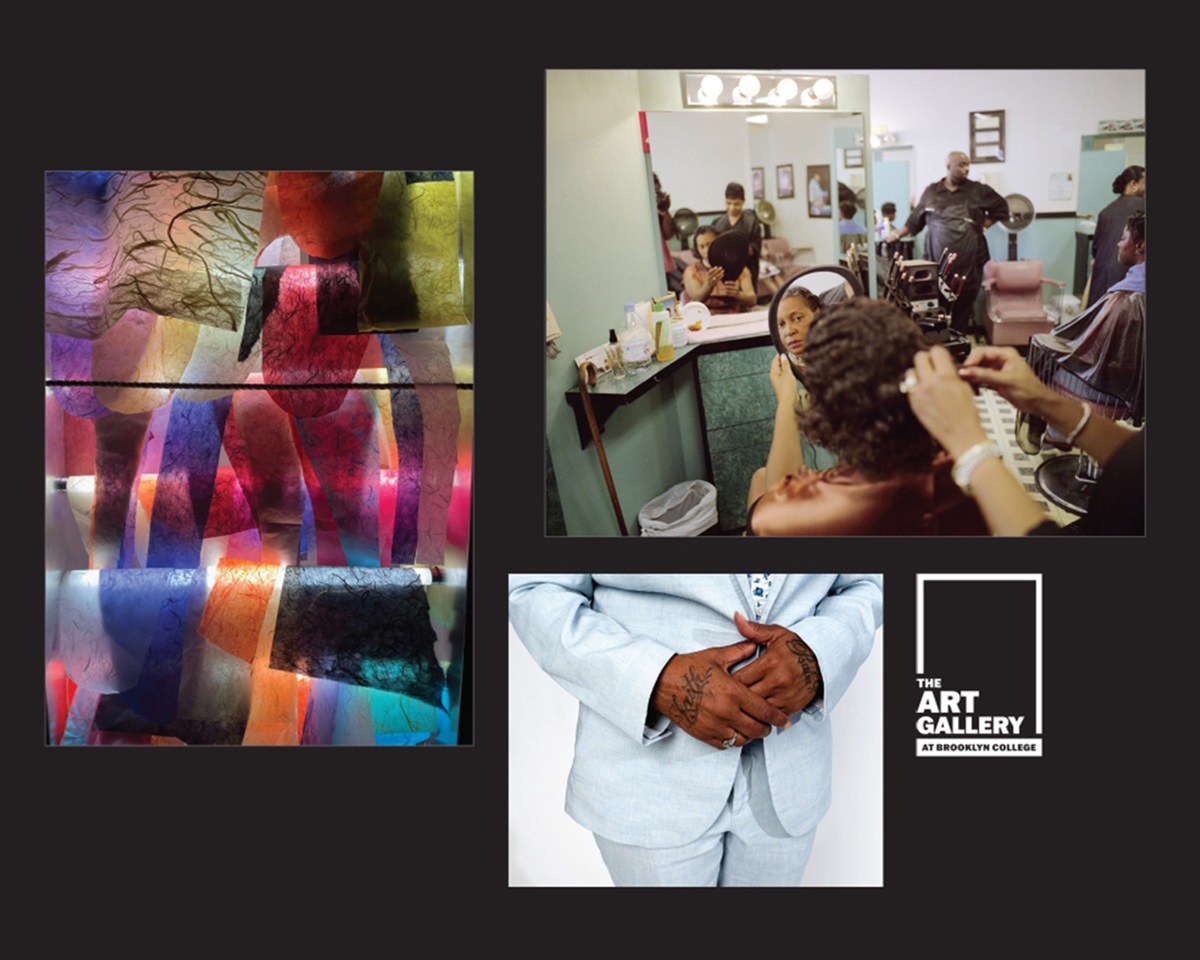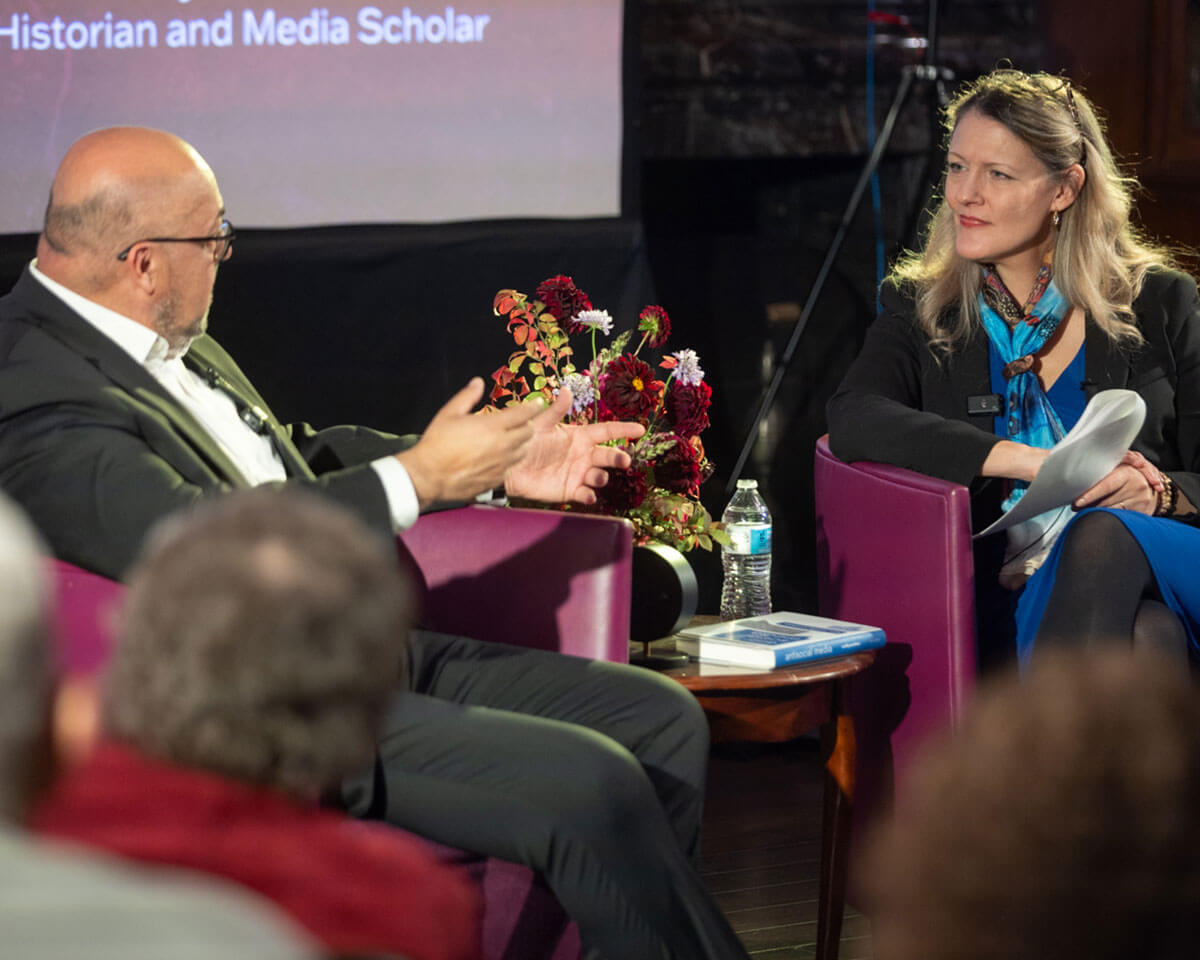A little over a decade ago, when Katherine Fry, the department chair of Television, Radio and Emerging Media, was looking for new clients for her nascent media literacy organization, The LAMP, she was often met by pushback from the schools and other community organizations she would pitch.
“I got a lot of: ‘Kids need to know how to read and write. That’s what literacy is,’” she says.
In the years since, in the dawn of web 2.0, cyber mania, and fake news—and its acceleration since the 2016 election—media literacy has become a movement.
“People’s eyes are wide-open now,” she says.
In fact, Fry can indubitably argue that teaching media literacy—imbuing an awareness of media influence and helping to foster an active stance toward both consuming and creating media—is fundamental.
It’s a point she made when she was featured earlier this year in a PBS documentary, Fake: Searching for Truth in the Age of Misinformation.
“If you’re going to be teaching about reading and writing, you should be teaching about how the digital environment operates, and you should be teaching all of that with an eye toward critical understanding,” she says from her office in Whitehead Hall during the February broadcast.
For scholars of media literacy, the times are particularly surreal. Never has their expertise been so exigent. And yet, with all the political rancor and tribal divisions across the globe, never has the landscape for their pedantry been so inscrutable.
For some Brooklyn College professors, the combination has given great purpose to their work. Fry, from her post as department chair and a prolific scholar in the retooled Journalism and Media Studies Program, has dedicated herself to empowering the next generation of media literacy educators.
Convictions Intact

Illustration by Paul Gagner
Cheryl Carmichael, an associate professor in the Psychology Department, has also found some of her recent scholarship to be particularly relevant. Her research shows that in the face of information that defies one’s beliefs, most of us are in possession of multiple tools that we will employ to slay, avoid, or otherwise diminish data in a stubborn effort to keep our convictions intact.
“We just find ways to bring in other pieces of information to confirm our beliefs or ways of minimizing the impact of the contradictory information,” says Carmichael, who also has an appointment at the CUNY Graduate Center.
In a paper published in May 2019 in the European Journal of Social Psychology with her former doctoral student Matthew H. Goldberg, the pair looked at which belief-defense strategies people used and why, research they say could be crucial in informing messaging campaigns on important social, political, and public health issues.
Their conclusion? People go with the approach that has the best shot of defending their beliefs. Often that means not even engaging with “belief-threatening information.”
“When people are faced with a strong argument and they believe they can’t argue against it on merit, instead of saying ‘I guess you’re right,’ they will either ignore it or choose to say, ‘It’s really a matter of opinion.’ It’s a less compelling argument but it still allows them to maintain their belief in a way that they don’t have to give over to the facts.”
Active Media Literacy Education

Illustration by Paul Gagner
“With media literacy education, it’s really important for us as scholars to bring our theory down to something concrete that you can teach to somebody,” says Fry.
She has done that, first through The LAMP—which stands for Learning About Multimedia Project—and now through her army of media literacy educators who go into public schools and community organizations, targeting older adults as well.
The LAMP recently folded but for more than a decade she created, conducted, and facilitated programming in which first-graders studied advertising, second-graders made videos and other media content, older students learned about their role in the digital environment, and high school students teamed with retirees to deconstruct and re-edit commercials, among many other types of related programming.
“The making is so important because you get to understand how media decisions are made,” she says.
Her work with the nonprofit helped her devise a model of active media literacy education that she teaches her graduate students.
“There aren’t enough media literacy educators, so it’s a real mission for me,” she says.
The students from her graduate seminar on a mission to change the landscape. One who ended up working for The LAMP facilitated a six-week summer program on digital and media literacy for a high school in the Bronx in the summer of 2019 where students learned about producing a video and developing a critical sensibility around video, audio, and all things online. Another developed a media literacy workshop about representations of American Indians in Fry’s class and then used it at the National Museum of the American Indian in Manhattan, where she ended up working. This past summer, two of her former graduate students facilitated an online digital and media literacy workshop for students at John Adams High School in Queens focusing on identity and Black Lives Matter.
Catherine Burgess ’18, who graduated with a master’s in media studies, began working with the National Association for Media Literacy Education (NAMLE) after taking Fry’s seminar in 2017. There she joined the leadership council, helping the organization grow into a leader in expanding media literacy education in the United States. She was also hired as the program coordinator at The LAMP before it folded. Today she is an associate director at a strategic fundraising consulting firm, a job that she hopes helps round her out for a leadership role at a media-focused nonprofit. She says it’s a real calling for her.
“For me, media literacy education has a civic element to it,” she says. “News is essential to a functioning democracy. Activating people to become thoughtful consumers of media is a way of expressing my own civic engagement.”
Part of the Solution
Fry is also hoping to, in the near future, repeat a trip she made to Turkey in 2015, when she conducted focus group interviews with college media students. She’d like to return to find out how the media are faring in the more repressive political regime that has risen in Turkey. She may even add a trip to Brazil, where one of her graduate students can help provide her similar access. She’s also working on a book interrogating the shifting notion of truth in the digital environment.
Return to the BC Magazine



